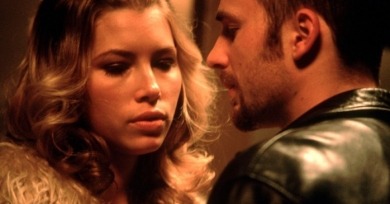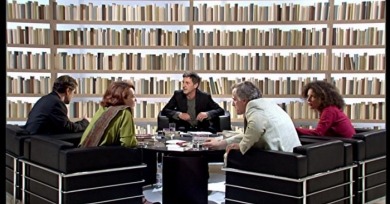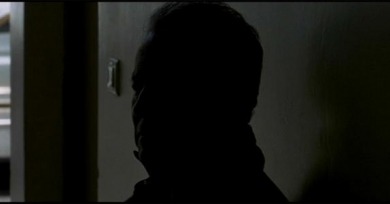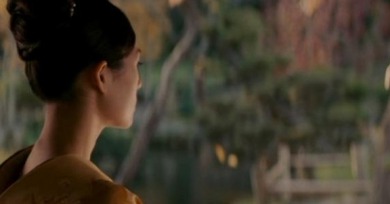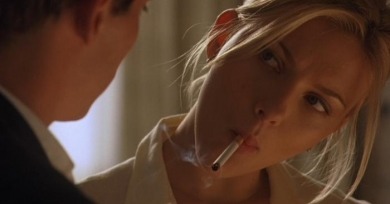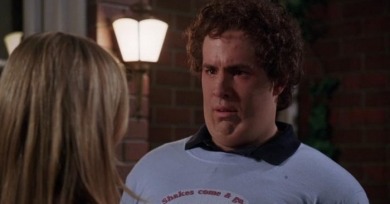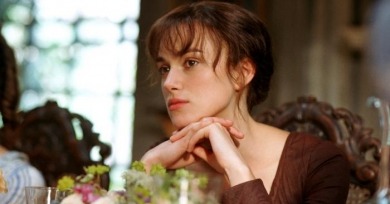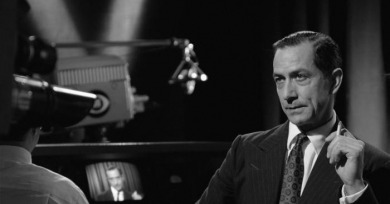Reviews
The title implies hairy-campy horror-fun and the film delivers it—nothing misleading about that. It’d take a right stickler to quibble over the fact that at no point in the movie do multiple werewolves ride any wheeled vehicle, and that when one of the gang does his ride lasts under a minute.
Innocent and unfathomably wronged, the suffering child is society’s favorite martyr, providing a cathexis for pity even more satisfying than the equally needy outpourings of concern for sensationally victimized adults.
The saying goes that everyone has at least one story worth telling. Frankly, that’s bullshit. Some stories—and some people’s lives, for that matter—are not worth unleashing on the rest of us.
Where, exactly, to slot everybody’s (ok, not everybody’s) favorite Austrian provocateur in the movies-as-politics continuum?
What to say in the face of Terrence Malick’s The New World? What to say indeed in the face of a film that has left me at turns wobbly-kneed and energetic, teary-eyed and grinning, melancholy, and ecstatic?
It’s a movie about Louis, an aged soldier of fortune (Michel Subor, resplendently craggy) whose body appears to be breaking down. He brokers himself an under-the-table heart transplant and then tries, at great expense, to reconnect with his estranged son, who may or may not be in Tahiti.
Scrambling inelegantly for the moral high ground, a number of fainthearted critics are using the recent horror doubleheader of Wolf Creek and Hostel to persuade their readers they still have souls, if not stomachs.
Like a lady-who-lunches toting her Takashi Murakami-designed Louis Vuitton bag, Marshall clearly believes that his appropriation of Japanese culture lends Memoirs of a Geisha a veneer of edgy authenticity where clearly none exists.
Jim Carrey movie at that). In the movies, the smart money is on the historical epic, where the remote past can be mythologized beyond recognition.
Had he disappeared for a while to return with Match Point, Woody Allen would well have deserved a wholehearted embrace. But he’s been here this whole time, hanging around like an aging fighter unaware of the embarrassing figure he cut, unheeding of the calls to stay down.
If there is certainly a moral onus hovering above its identification and observation of the mechanisms of global power, it cannot be reduced to mere partisanship and self-vindication. If anything, the film is exemplary for giving us no safe place to lay our righteous heads.
Just Friends had the misfortune of ostensibly belonging to one of the more reviewer-reviled comic subgenres; lacking any sort of critical caché, its likes are usually thrown to the interns, written off in 48 states by some stooge on AP wire, or dealt “safe” pans by grandstanding writers.
I value these moves greatly because a filmed version of Jane Austen featuring an attractive cast of fresh faces and reliable codgers propping up a hot young ingénue needn’t choose to do any of them to find an audience.
Good looking, smart, and responsible, George Clooney’s Good Night, and Good Luck performs its modest mission well.


